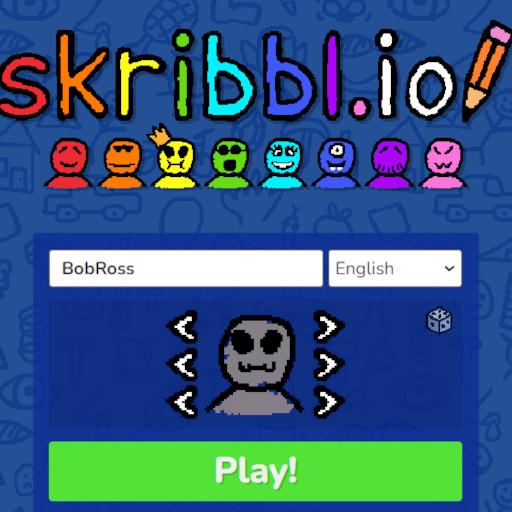skribbl.io is a free online multiplayer drawing and guessing pictionary game originally released on the Crazy Games website in February 2017. It offers a way to play Pictionary online with strangers or friends. For this analysis, I played a few rounds of skribl.io with friends and a few with complete strangers online. These rounds had different aesthetics even though the same core mechanics and dynamics remained, simply due to being familiar with the players. Our game is intended to be a party game that brings players together through the act of guessing and a primary aspect of it includes guessing, and so I thought playing skribl.io would be a worthwhile experience. The mechanics of repeated guessing and drawing ultimately creates a dynamic where players are encouraged to express whatever is immediately on their mind without fear of repercussion, culminating in an aesthetic experience of companionship and friendship as people laugh and bond over mistaken guesses and shoddy drawings
There are two roles in skribl.io: drawer and guesser. The drawer has 60 seconds to draw and the guesser has to guess what is being drawn anytime within that 60 seconds. The earlier the guesser gets the word, the more points they and the drawer receive. The drawer is incentivized to draw well enough that everyone can guess correctly. The interplay between these two rules serves to create the game’s main types of fun, that being Challenge and Fellowship.
Since players only have 60 seconds to draw and guess and are rewarded for quick answers, they are incentivized to rush and make mistakes. For example, during one of my games, the word I had to guess was angel. I wanted to type it as fast as possible, and so accidentally ended up typing out the word “ngel”. This had two effects: first of all, everyone who didn’t already know the word was angel figured it out, and people got a good laugh out of asking me what an “ngel” was. And as for me, I didn’t feel any embarrassment or shame at my mistake. According to “What Games Are” and “What Games Aren’t”, one of the reasons people enjoy games is that they are tools to learn without facing consequences or repercussions for failure, and this is evident in the dynamics of skribl.io. Since there is absolutely no penalty for mistaken guesses, people just throw out whatever they’re thinking of, leading to laughs and fostering that aesthetic of Fellowship.
This Fellowship aesthetic shined through even when I played with strangers. One of the words I received was noise, and so I simply drew a music note. I honestly felt that there wasn’t much I could add there, and so I left it at that. Everyone proceeded to guess words such as notes, music, sound, etc. without guessing noise. In the end, only one or two people managed to guess it. Afterwards in the chat everyone started talking about how obvious it was and poked fun at themselves for missing it. That shared experience of missing it offered an avenue for bonding and connection.
In a game where there was a penalty for incorrect answers or even a longer guessing period, players would be encouraged to be more considerate with their guesses and create better drawings, both of which would harm the fun of Fellowship in the game. The quick drawings and off the wall guesses both are able to create obstacles to serve as the Challenge component of the aesthetic while serving as the basis for the stories and jokes people will make about the game later to create the desired social dynamic and Fellowship component. In fact, when playing with my friends, it almost seemed like a shame to me whenever one of my more artistically inclined friends had a turn drawing, and I suspect this is a common sentiment. High quality, better drawings end up less useful for creating this social dynamic; it just ends up with people complimenting the artist and feeling a little insecure and inferior about their own drawings.
In our game, we are hoping to achieve a similar social dynamic. Since our game is team-based, one team guesses at a time while the other doesn’t, we need to think about what type of mechanics can best create this ultimate desired aesthetic. We don’t want teams to get only one guess or limited guesses preferably; there has to be some room for people to make bad guesses and bond over explaining their thought processes behind it and finding others with similar thoughts. We want to encourage people to constantly be guessing and engaging with the game like skribl.io; and that means how well the guessing mechanic works and the dynamics and aesthetics it ultimately creates is one of the most important procedures of our game to work out.



